The workplace is no place for racism or any kind of discrimination. Yet, according a 2023 global report by Catalyst, 66% of employees say they’ve experienced racism during their careers, and 52% claimed to experience it in their current jobs.
This Korean woman faced drama because of her non-English name. When a Muslim coworker complained to a manager that her Korean name means something offensive in her religion, the woman was asked to either use an English version of her name or choose a nickname while at work. Feeling that this isn’t a reasonable ask, the woman decided to check with people on the internet.
A Korean woman was asked to change her name at work because it meant something offensive to her Muslim colleague

Image credits: unsplash (not the actual photo)
Not sure whether this is appropriate, the woman decided to seek advice online
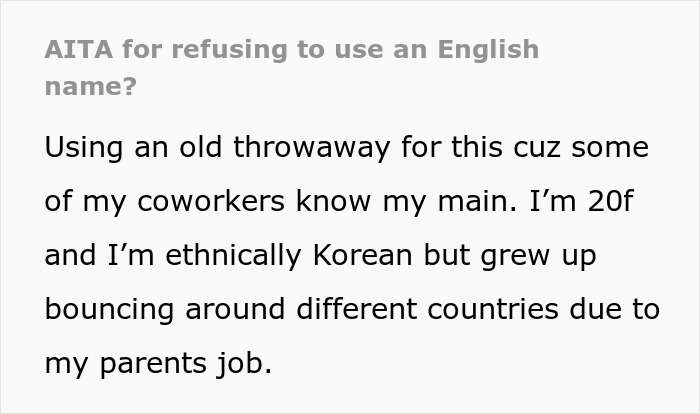
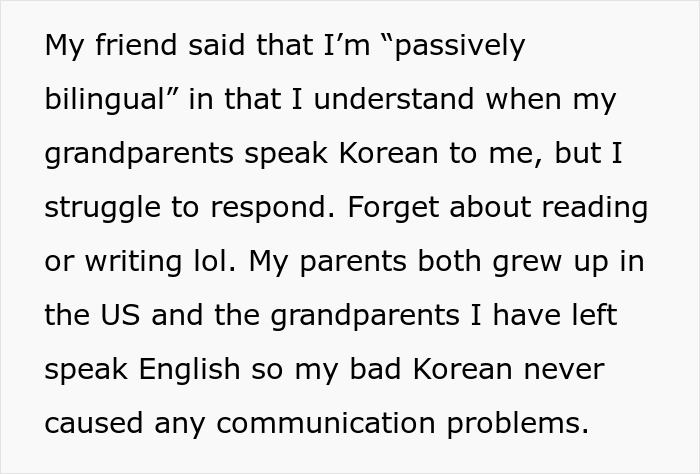
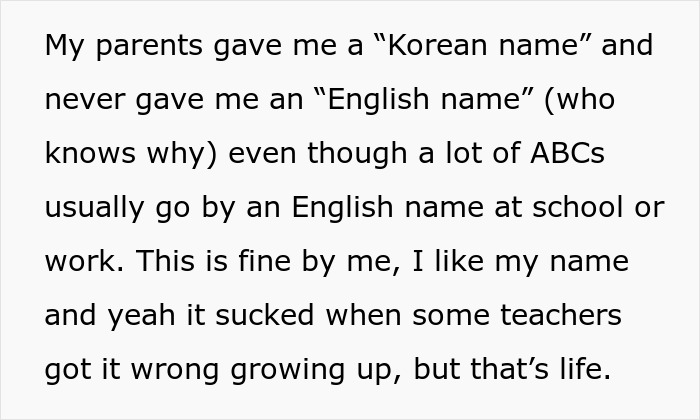


Image credits: freepik (not the actual photo)




Image credits: throwawayrella
Having a non-white-sounding name diminishes one’s chances to get employed

Image credits: freepik (not the actual photo)
“What’s in a name?”, Shakespeare asked in Romeo & Juliet. Turns out, a lot. We might think that a name is just a sound and word we use to call others. But, in reality, names come with a lot of bias, and it’s most frequently racial.
Many children of immigrants can attest to that. Whether they live in the U.S., the UK, Canada, Australia, or any other English-speaking country, people with non-English names often have to anglicize them in order to fit in with the general public.
In 2004, a study found that job applicants with “white-sounding” names would get 50% more callbacks than African-American ones. Recent research from 2024 reiterated that by finding that employers favor white applicants over black ones by 24% even for entry-level positions.
A 2011 study tested this theory in Canada with Chinese, Indian, Pakistani, and even Greek names. The researchers noticed a similar trend: employer contact falls by 4.4% when the applicant’s name doesn’t sound English, even if they have the same education and experience that applicants with English-sounding names have.
Many U.S. immigrants would anglicize their names to assimilate

Image credits: pexels (not the actual photo)
Immigrants and foreigners adopting an English name has become so normalized that people often even expect it. And while I myself have many times ordered coffee under the guise of “Jenny” or a “Katy” so the barista doesn’t botch my name, being asked to do so in a professional environment can feel discriminatory.
Historically, those who immigrated to the U.S. often changed their names to the most English-sounding names to accommodate English-speakers who couldn’t pronounce them properly. They would also have a better chance at economic success: many felt that an angliziced name would appeal better to customers.
This was true to immigrants from many different countries: Eastern Europe, Italy, Asia, and even Ireland. Some research suggests that 33% of U.S. immigrants changed their names within the 10 years of their arrival.
Nowadays, people are reclaiming the power in their non-English sounding names

Image credits: unsplash (not the actual photo)
Asian immigrants often bore the brunt of the discrimination. The Chinese who immigrated into the U.S. early often faced lynching by mobs, racist ideologies like the “Yellow Peril”, and immigration bans. The Japanese were targeted also, as approximately 120k Japanese Americans were sent to concentration camps during WWII.
Catherine Ceniza Choy, a professor of Asian American and Asian diaspora studies at the University of California, Berkeley, explained to CNN that, in the 19th and the 20th century, Asians were perceived as “strange, but also inferior, dirty, uncivilized.”
“(Back then) the desire to fit in is also about surviving an overtly racist, hostile society,” she pointed out.
And, just as for immigrants from other countries, newcomers from Asia would choose to assimilate by Americanizing their names. From 1900 to 1930, 86% of boys and 93% of girls had “an American name”, according to the U.S. Census.
However, today, people recognize that demands and pressure to change one’s name are about power and control.
“When you have to disown a major aspect of your identity such as your name as a means to fit into American society, it can feel like you’re cutting off a part of yourself to the world,” a therapist who specializes in multicultural issues, Sam Louie, MA, LMHC, CSAT, writes.
“It isn’t a swear word or anything,” she clarified the meaning of her name
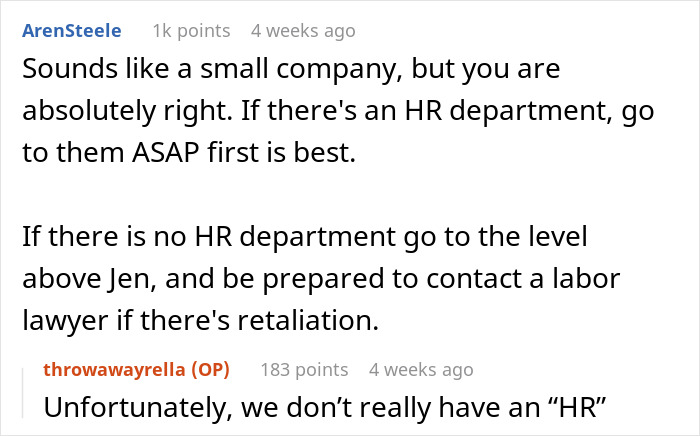
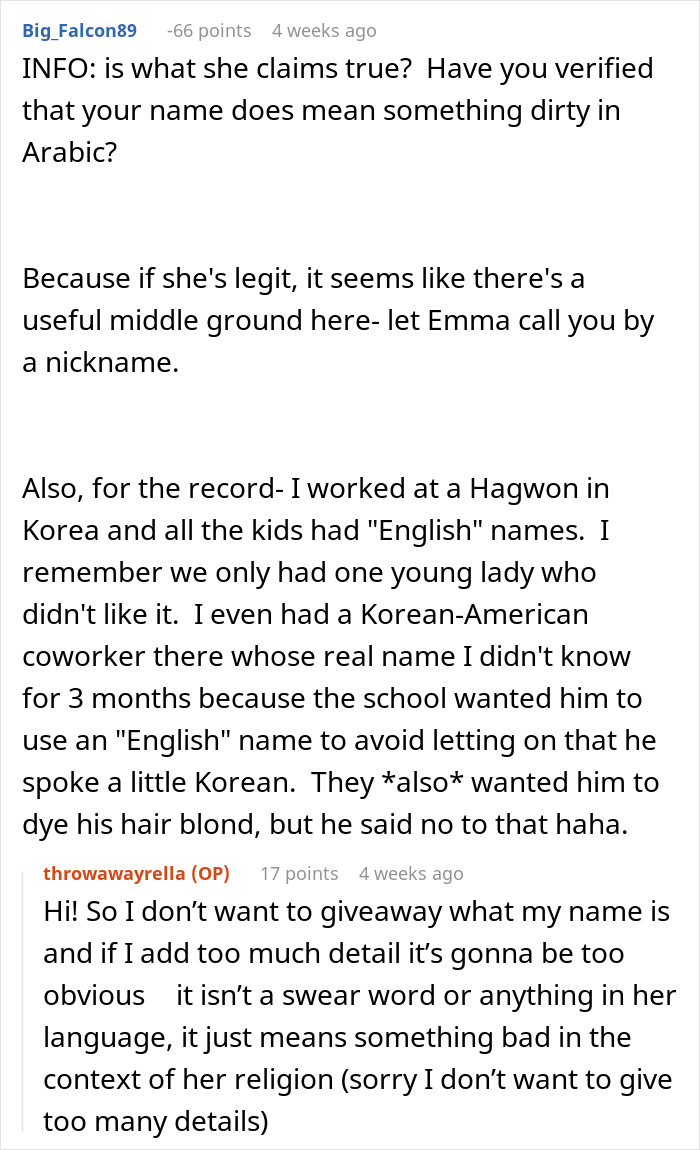
People thought the coworker’s demand was pretty racist and unreasonable

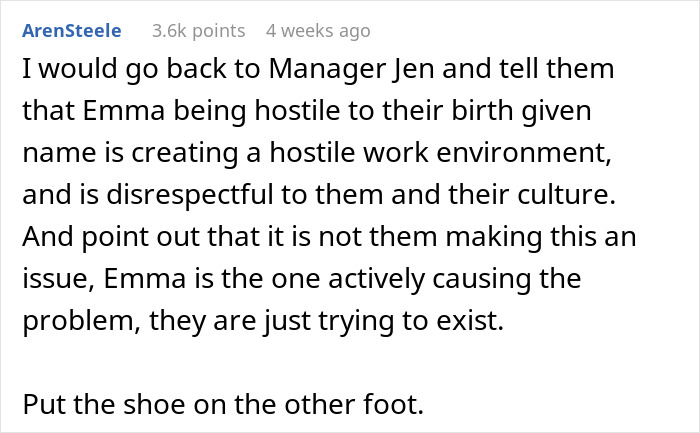

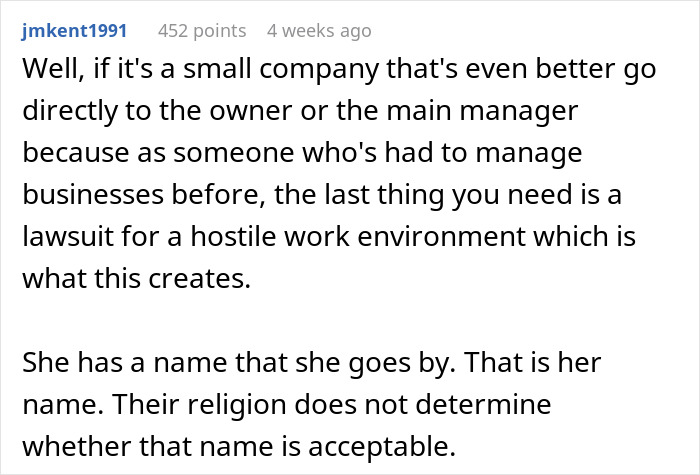
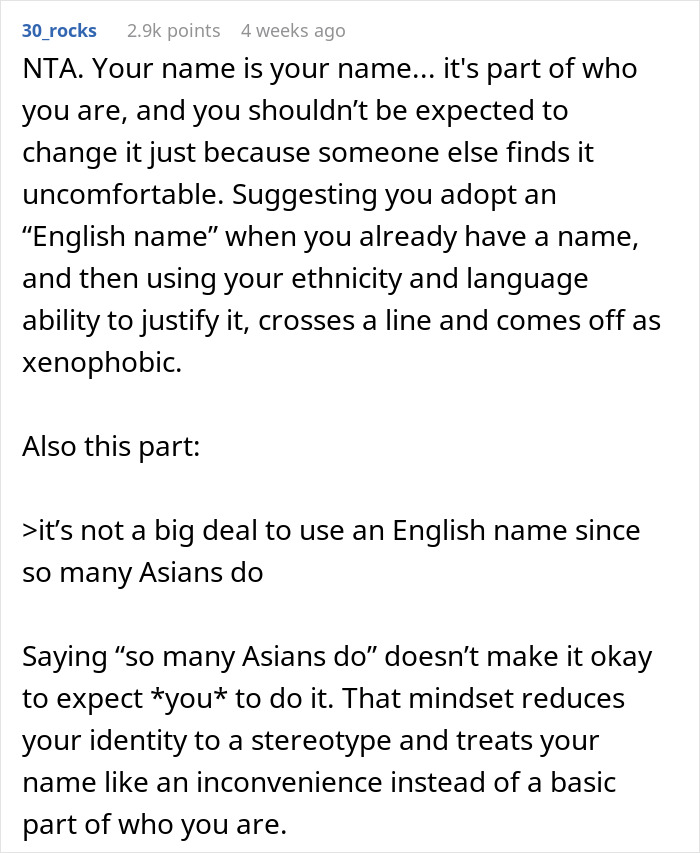
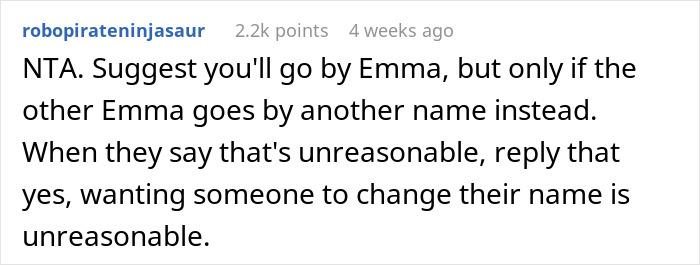

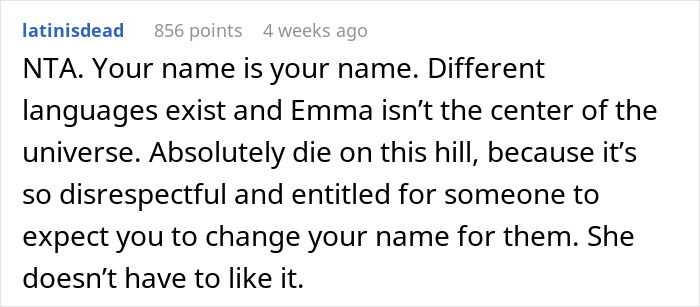
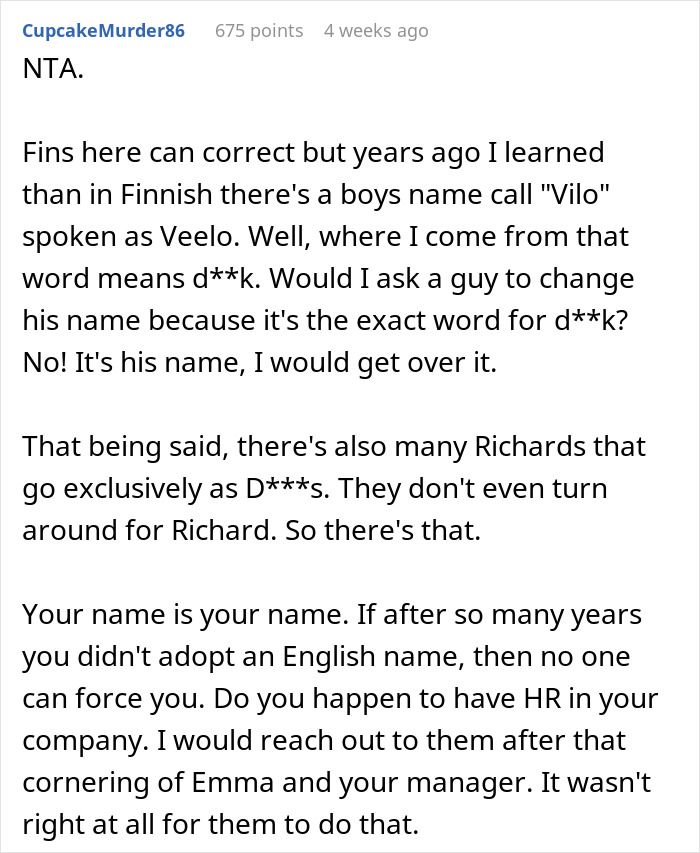
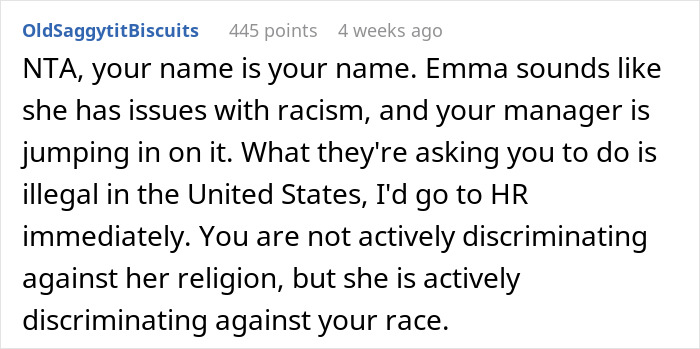
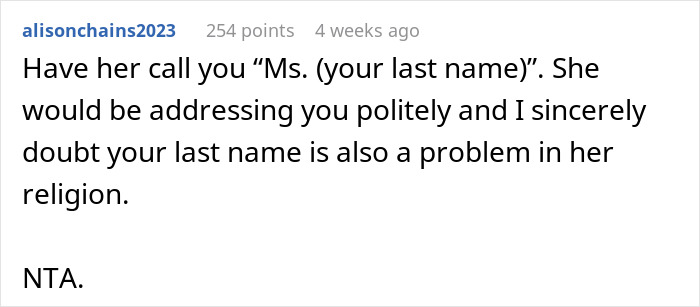
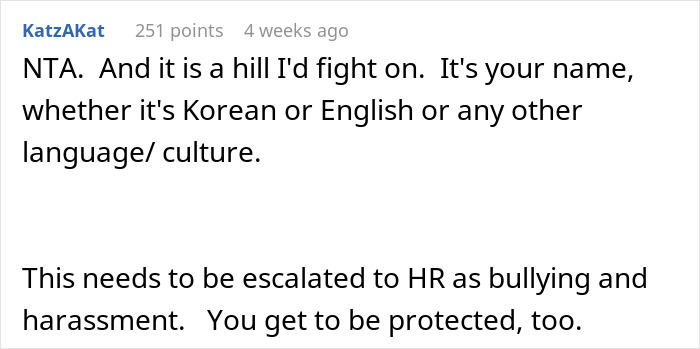
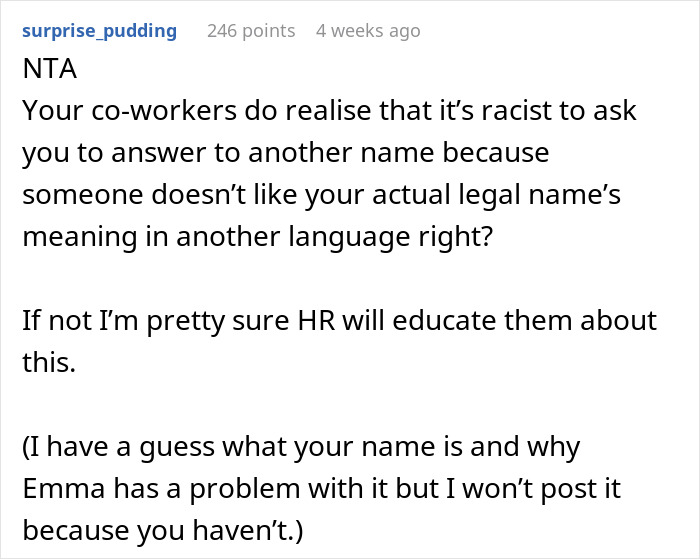
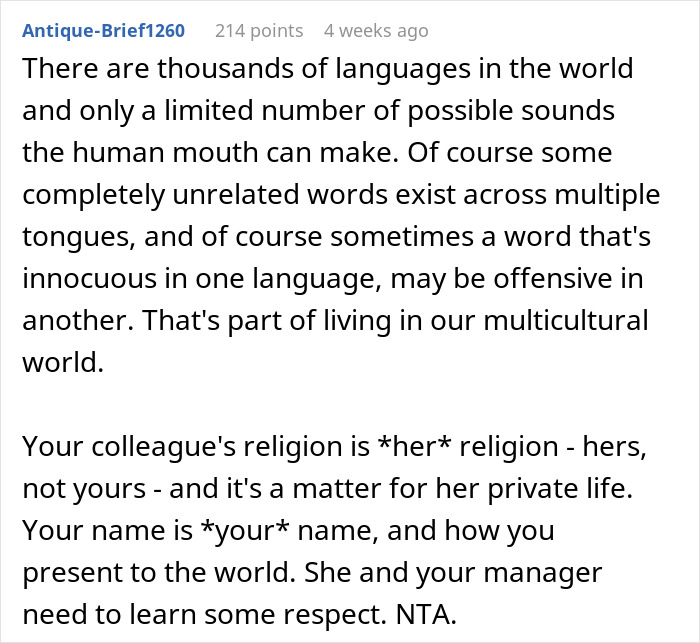
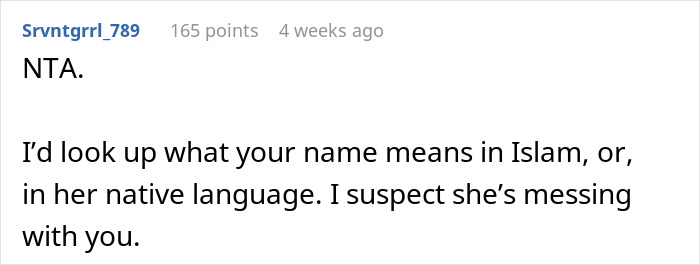
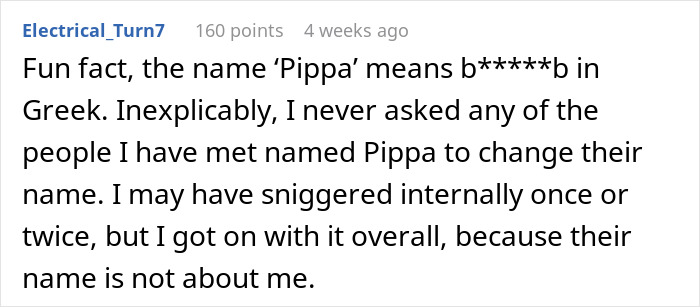
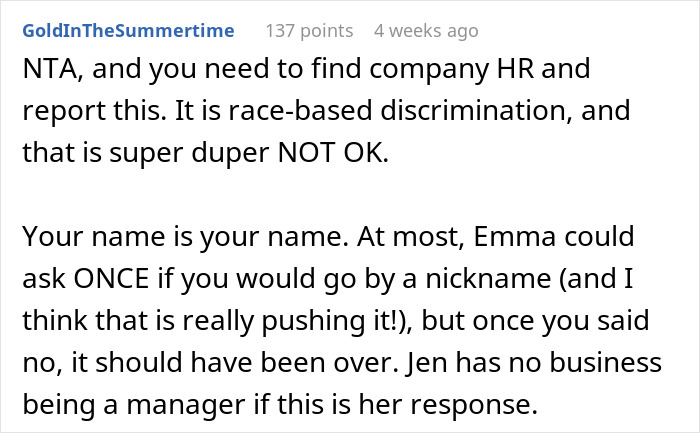

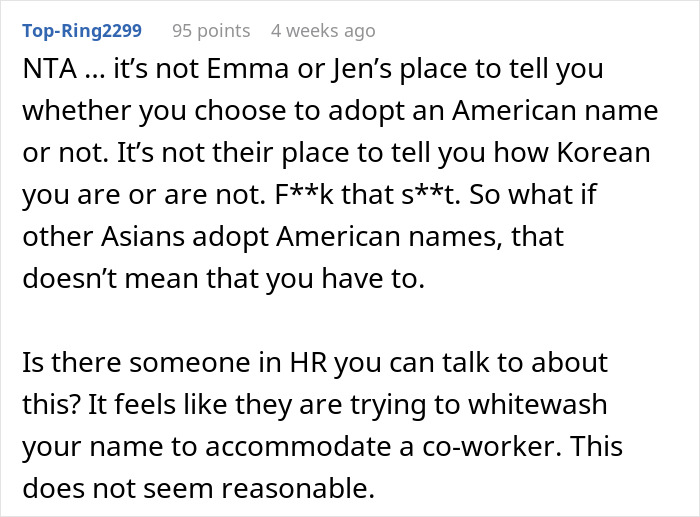
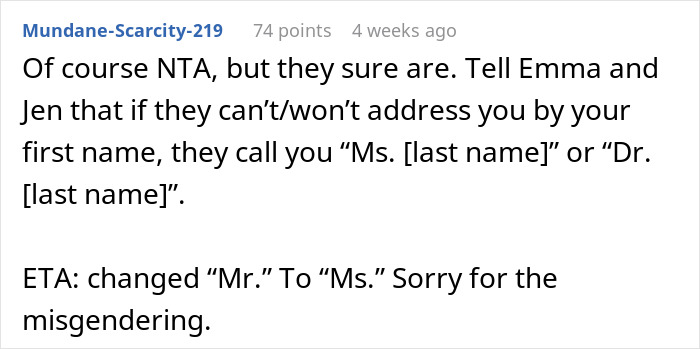
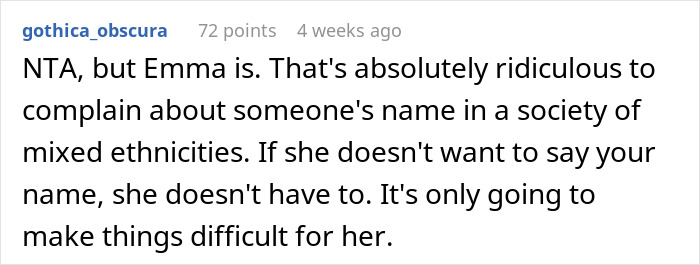
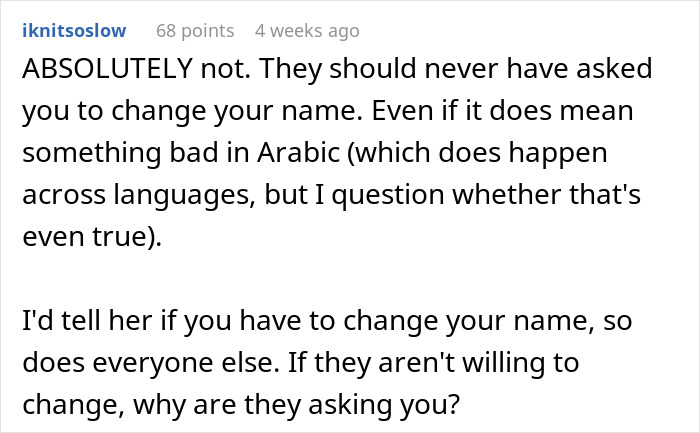
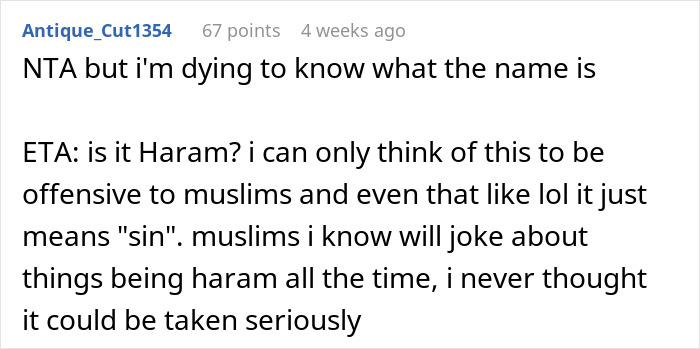
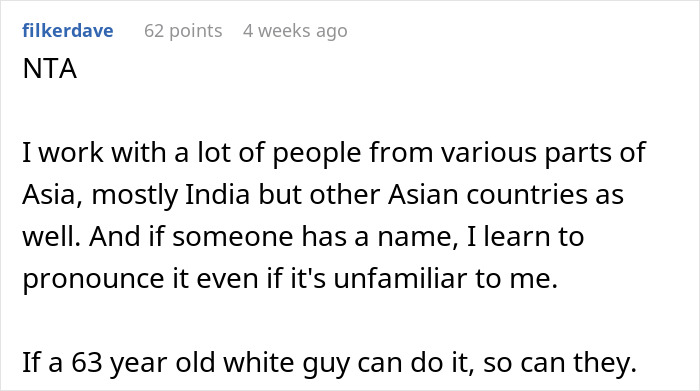


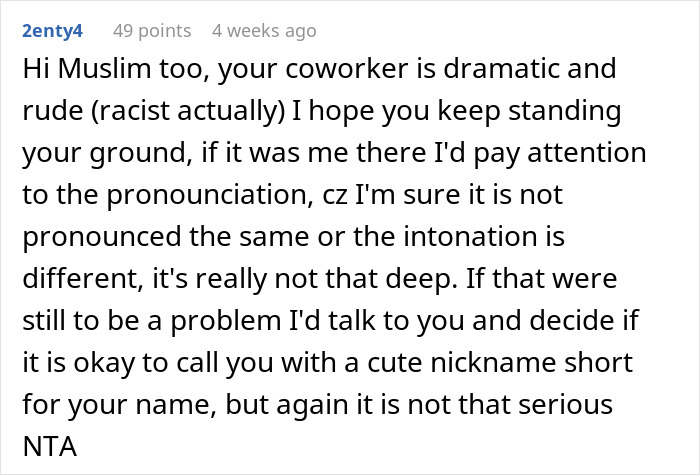
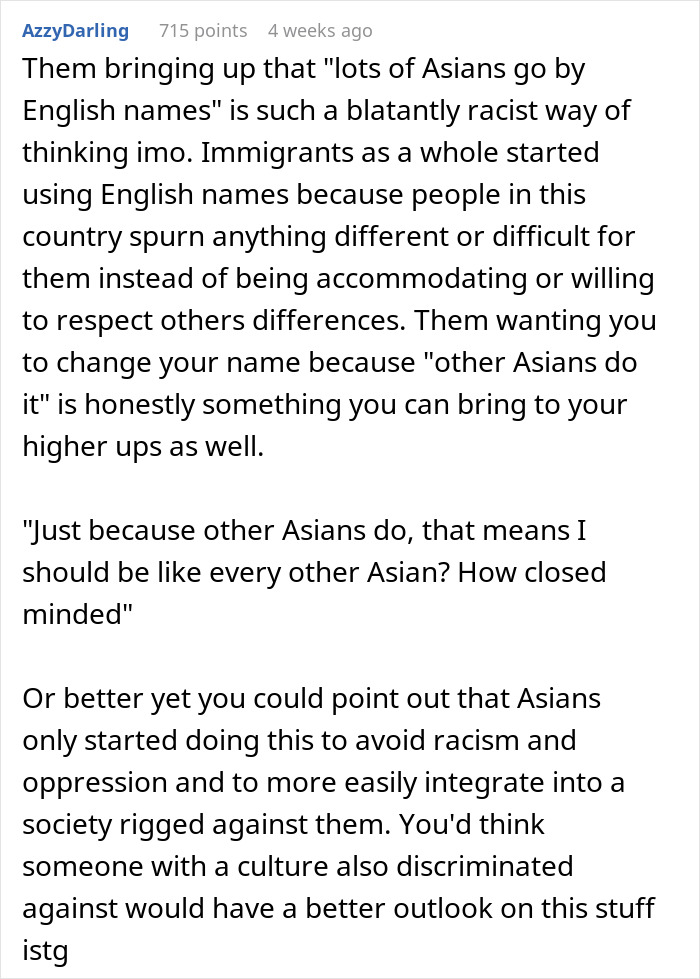

The support from netizens validated the woman’s feelings: “I definitely do NOT wanna cave at this point”








